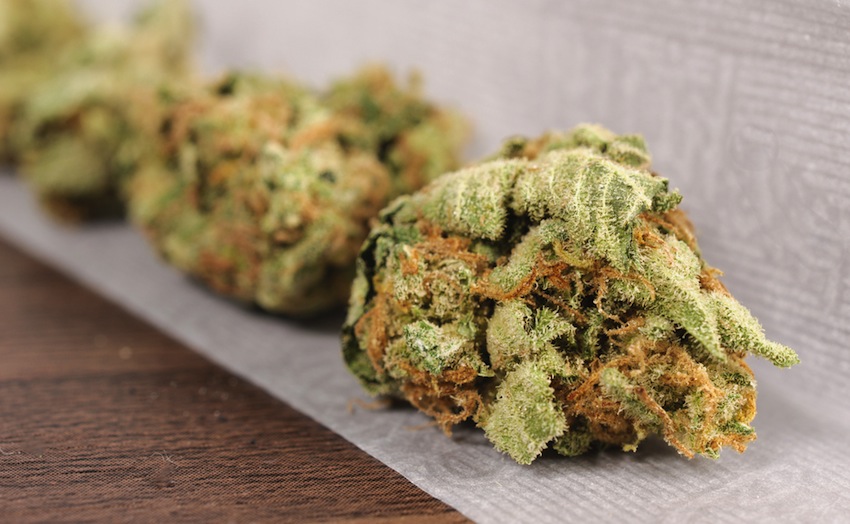Anti-Prohibition Committee Wants Massachusetts to Legalize Marijuana By 2016

Marijuana Photo via Shutterstock
Medical marijuana dispensaries haven’t yet opened up in Massachusetts, but pot advocates are trying to keep the momentum of voter support going and are pushing for the legalization of the drug in the next three years.
Bay State Repeal, a state ballot question committee dedicated to doing away with marijuana prohibition, filed the necessary paperwork with the state’s Office of Campaign and Political Finance last week to organize their efforts.
Led by “local veteran advocates for marijuana law reform,” with experience with state politics, the group is getting a head start on their proposal to repeal marijuana prohibition laws. “With voter attitude evolving rapidly and the deadline for filing over 21 months away, the exact wording of the proposed initiative is a work in progress,” according to a statement from the group.
Their website has not been fully set up yet, however, it directs people to a landing page with the group’s mission statement. The campaign committee is focused on constructing the country’s “simplest and least restrictive plan for marijuana law reform,” they said.
To do that, Bay State Repeal will create a ballot question and put it before voters during the next presidential election in 2016.
To test the waters, members of the committee will try to get a non-binding referendum on the 2014 ballot, gauging voters’ feelings about legalizing the drug. The decision to formulate the language for a binding ballot question to end marijuana prohibition will be based on that feedback. “This has been in the planning for many years,” said William Downing, treasurer of the new committee.
Downing thinks the pattern of support for marijuana reform in the last six years will help further their plan to introduce full-on legalization. In 2008, Massachusetts constituents voted in favor of decriminalizing marijuana. Last year, the state introduced the legalization of medical marijuana through a ballot question presented to voters on Election Day.
The public policy questions will help the committee with their vision of how marijuana should be regulated in Massachusetts if it is legalized. But Downing said a few basic things that should be included in the guidelines would be restricting the sale of the drug to minors, and eliminating the black market for distribution. “If we ever really want to free ourselves from the what we presently have, we should allow people to grow their own marijuana. It is a weed, it grows easily, and there is no reason not to allow that,” he said.
Recent legalization in other states, like Washington and Colorado, have also given the committee hope that the nation as a whole is moving in the direction of realizing its benefits. But members of Bay State Repeal plan to refine their version of the law.
“We see those two states as great examples of the potentials for legalization, and we will certainly use some of what they offer as models for our own proposal,” said Downing. “But there are parts of their laws that are still based on the old-style thought about the negative effects of marijuana. There is a lot of these bureaucratic restrictions that involve fees and licenses that we feel are both overly restrictive, and exploitative.”
But of course, that will be up to the voters.


